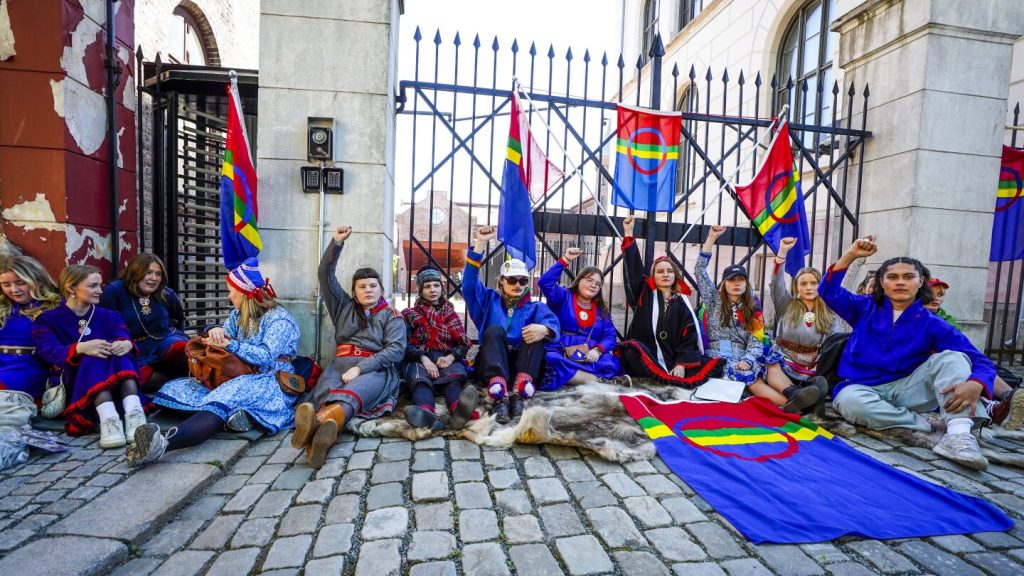A Norwegian court has ruled that police acted unreasonably when they fined 18 activists for blocking entrances to government buildings in protests over a wind farm that they say hinders the rights of the Sami Indigenous people to raise reindeer. The activists were acquitted of charges of failing to pay the fines, with the court stating that it was neither necessary nor proportionate to react with a fine in this case. The court noted that the activists were protesting the continued operation of the wind farm despite an earlier Supreme Court judgment that the construction of the turbines had violated the rights of the Sami people.
The activists have been demonstrating against Europe’s largest onshore wind farm, located in central Norway’s Fosen district, since the Supreme Court ruling in October 2021. They have raised concerns that the transition to green energy should not come at the expense of Indigenous peoples’ rights. In February and March 2023, 13 activists occupied the entrance hall of the Norwegian Energy Ministry, and five others blocked access to the Finance Ministry. They were removed by police and given fines for not complying with orders to leave the sites. The activists refused to pay the fines and were charged for not doing so.
The Oslo District Court ruled that there was no particular justification to respond with fines or other punitive actions against the activists, leading to their acquittal. Ella Marie Hætta Isaksen, one of the activists, expressed surprise at the ruling but also relief that they were all acquitted. Last month, the Norwegian government reached an agreement with the Sami people, allowing all of the wind farm’s turbines to stay in operation. The Sami will receive compensation, a share of the energy produced, a new area for winter grazing, and a grant for strengthening Sami culture.
Lawyers for the activists hailed the ruling as an important milestone for freedom of assembly and expression in Norway. They stated that the court found that the interventions by the state, including ordering an end to the demonstration, bringing activists to the police station, and punitive actions, violated the defendants’ right to participate in peaceful assemblies and demonstrations. The ruling emphasized the importance of protecting the rights of Indigenous peoples and ensuring that their voices are heard in matters that affect them.
The activists’ protests highlight the ongoing struggles faced by Indigenous communities around the world in protecting their lands and rights in the face of industrial development. The case also brings attention to the complexities of transitioning to green energy while ensuring that the rights and interests of Indigenous peoples are respected and upheld. The court’s decision to acquit the activists sends a message about the importance of listening to marginalized communities and considering their perspectives in decision-making processes.
The ruling has implications for future activism in Norway and beyond, reaffirming the importance of peaceful demonstrations and the protection of freedom of assembly and expression. It also serves as a reminder to governments and companies to engage with Indigenous communities in a meaningful and respectful manner when implementing projects that could impact their lands and ways of life. The activists’ victory in court represents a significant step forward in the ongoing struggle for Indigenous rights and environmental justice.


